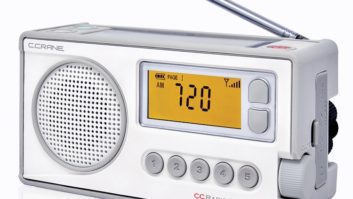Regulators Approve All Three Proposed Systems, Raising More Questions
OTTAWA Reaction to Canada’s approval of all three applications for pay radio has been mixed.
The government approved license applications for three subscription radio proposals, one each from Sirius Satellite Radio and XM Satellite Radio, a third from Canadian broadcaster CHUM. It also imposed tight domestic content restrictions on the providers.
The two groups proposing satellite services are pleased; and Canadian car and receiver retailers are gearing up to manufacture and promote Sirius Satellite Radio and XM Satellite Radio.
However Wall Street analysts predicted that Canadian content restrictions could slow satellite radio’s entry; and some put the odds that XM and Sirius would move forward at 50-50 at best. Analysts said the companies might choose to let the so-called “grey market” continue to grow. Canadian radio experts believe thousands of their fellow citizens are using U.S. addresses to get satellite radio.
The third group pushing pay radio in Canada is proposing a terrestrial-repeater-based service. It is not happy that all three applications were approved, and may appeal.
In June, several other entities were considering whether to appeal to federal court or the cabinet. One of the groups is a talent union, the Alliance of Canadian Cinema, Television and Radio Artists. It said approval of satellite radio “gives the green light to dump pre-packaged U.S. programming in Canada to the detriment of Canadian content.”
Not equitable?
“It should have been more equitable,” Paul Ski, executive vice president of radio for CHUM, told the Globe and Mail after the announcement of the decision by the Canadian Radio-television and
Telecommunications Commission. “We’ve got to go back and review it.”
CHUM, in partnership with Astral Media, has said its service could be operational in about a year. In contrast with the other applications, this partnership proposed a service consisting entirely of Canadian-originated content; its subscription rate would be the equivalent of approximately $10/per month.
Sirius expressed pleasure with the decision; it said it needed more time to study the Canadian content conditions associated with the license before commenting further. Kevin Shea, chief executive officer of Sirius Canada, told Macleans the company would see how the Canadian content conditions would affect the business plan, but overall, “We think something is there.”
XM was pleased with the decision; its partner GM Canada hopes to have factory-installed satellite radios in more than 50 brands in calendar 2006.
‘Unique opportunity’
The chairman of the CRTC, Charles Dalfen, said in the announcement that the decision met the objectives of Canada’s Broadcasting Act and balances the needs of consumers, the radio industry and the music industry.
Specifically, the CRTC approved license applications of Sirius Canada and Canadian Satellite Radio, partner of XM Satellite Radio, for digital satellite radio services, as well as the application of CHUM and Astral Media, which proposed its subscription service using terrestrial repeaters. Astral is based in Quebec and is noteworthy in part because it brings a French-Canadian presence to that proposed system.
Sirius Canada is a partnership between Sirius and Toronto-based Standard Broadcasting and the Canadian Broadcasting Corp.
Canadian Satellite Radio is a Toronto-based joint venture between XM and former Toronto Raptors owner John Bitove Jr.
“XM currently features a wide range of Canadian artists and our partnership with CSR offers a unique opportunity to expand the reach of Canadian music and culture in Canada and in the United States,” said XM President/CEO Hugh Panero.
XM and CSR will work to address the differences between the content standards described in the broadcasting license and what was proposed in the license application.
Can-con
The Canadian government said the two satellite-based services must adhere to several content requirements:
- At least eight channels of original Canadian content;
- No more than nine non-Canadian channels for each Canadian channel;
- At least 85 percent Canadian content on the Canadian music channels;
- One French-language channel for every three English-language channels;
- At least 25 percent new Canadian content on the music channels, with work produced by artists within the last six months; and
- A further 25 percent of the music choices on the Canadian channels must be the work of artists who have not yet had a hit.
Both satellite companies have proposed $12.99 per month subscription rates.
They have 150 days to notify the Canadian government whether they will accept the conditions, according to the CRTC.
Repeater-based
The CRTC also approved the application of CHUM and its associate, Astral Media Radio Inc., to offer a service comprising 50 channels produced in Canada, 20 percent of which would be in French. This licensee also intends to offer five channels intended for the Aboriginal, Chinese, German, Italian and South Asian communities.
The music broadcast by these channels must respect the minimums required by CRTC regulations: notably, for popular music, 35 percent Canadian content, and, in the case of French-language channels, a minimum of 65 percent of musical selections in French.
Also, CHUM/Astral must contribute 2 percent of its gross annual revenues, and the satellite radio licensees at least 5 percent, to initiatives for the development of Canadian talent.












